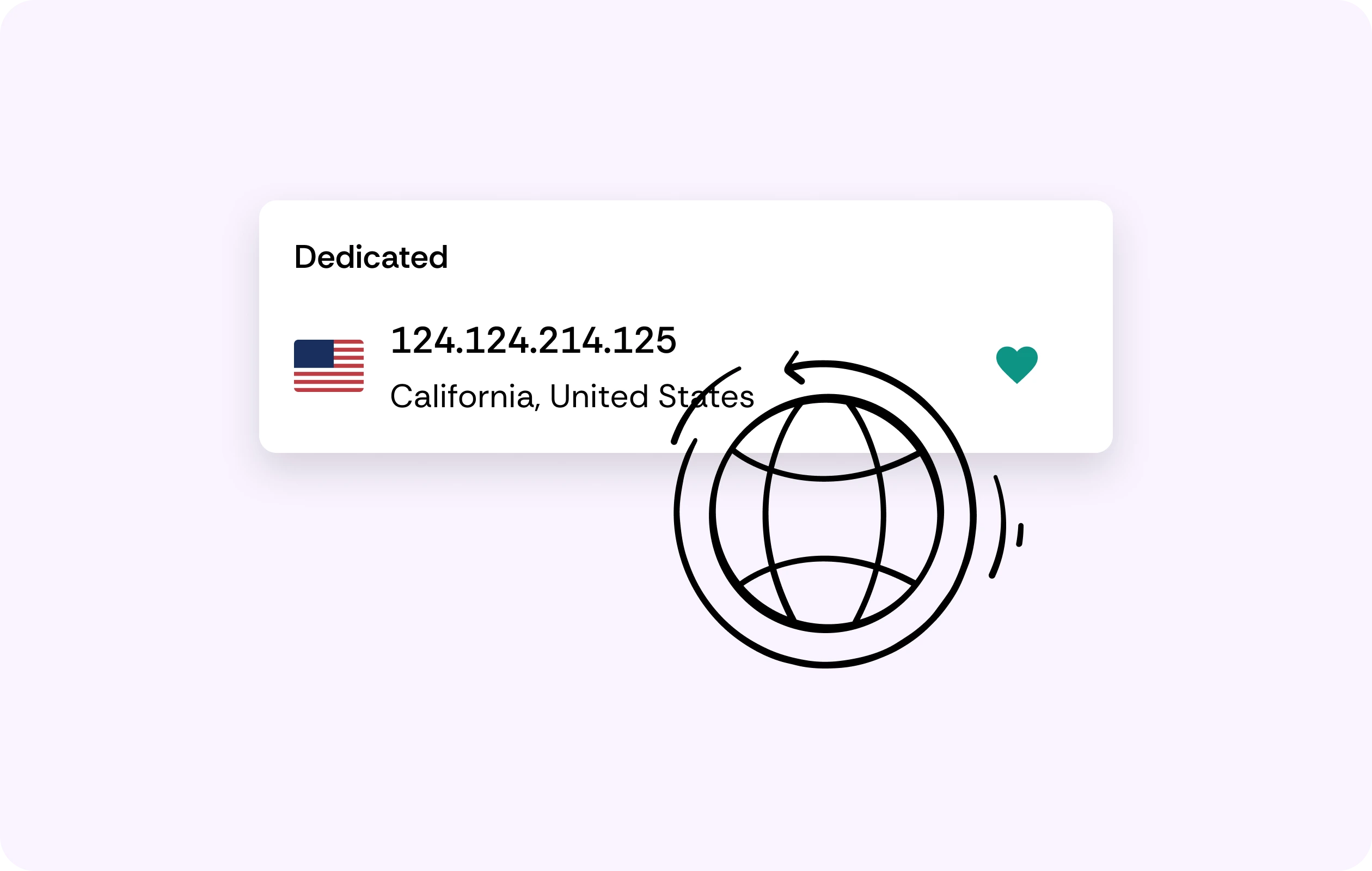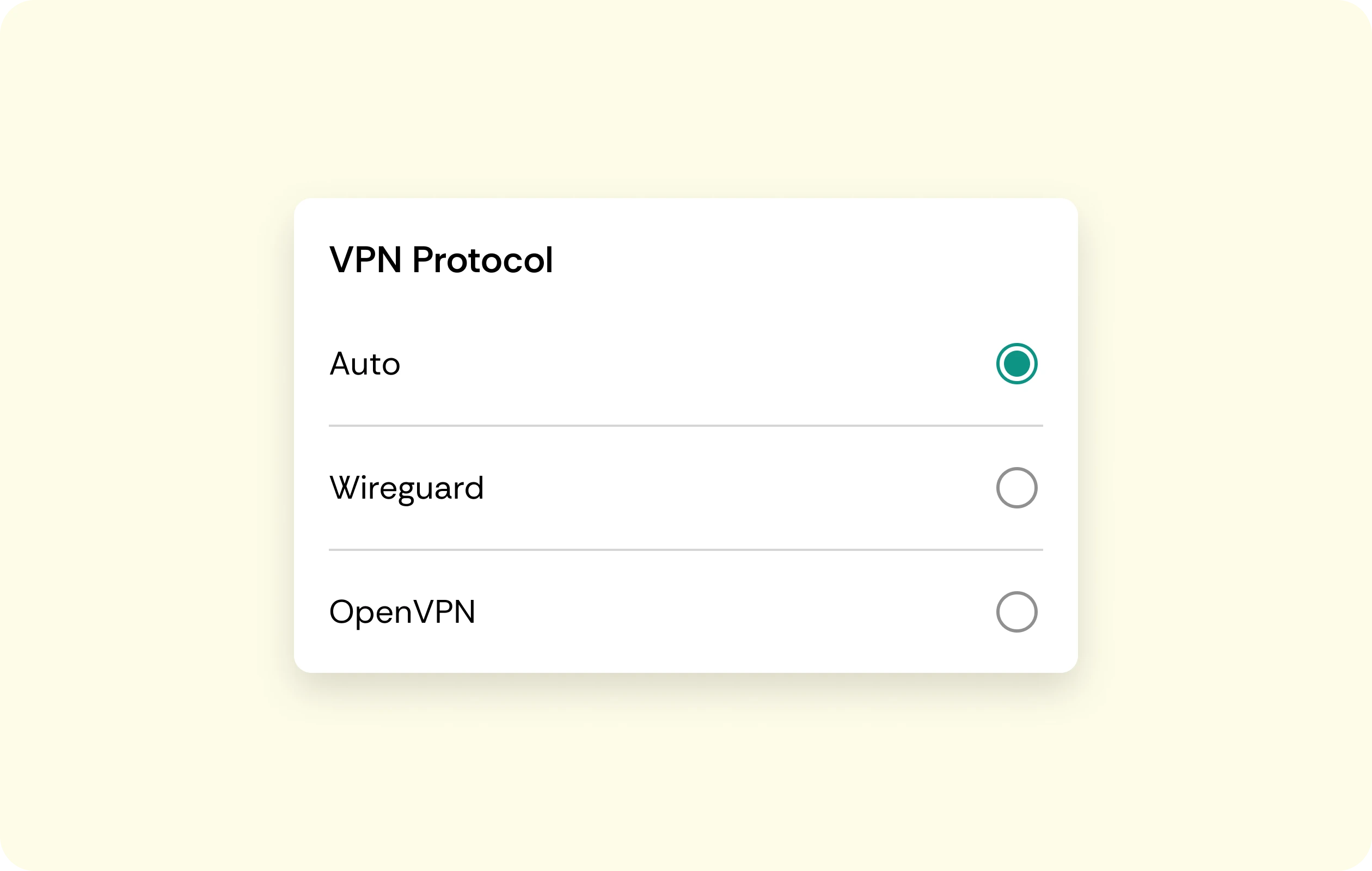Why choose our residential VPN?
Residential IP locations
Best Residential VPNs Compared
Residential VPN Brands | Price | Free trial | Location Choice | Speed | Privacy Protection |
|---|---|---|---|---|---|
| CometVPN | Starts from $1.89 per month | 3 Months | 50+ locations | High-speed unlimited bandwidth | High-tier encryption, No-logs policy |
| PrivateVPN | Starts from $2.08 per month | 7 days | 63+ locations | Reliable speeds with unlimited bandwidth | AES-256 encryption, No-logs policy |
| PureVPN | Starts from $4.07 per month | 3 Months | 65+ locations | Fast servers with unlimited bandwidth | Encryption, DNS leak protection |
| ExpressVPN | Starts from $4.99 per month | 4 Months | 100+ locations | Moderate speed, no bandwidth or connection limits | AES-256 encryption |
| CyberGhost | Starts from $2.19 per month | 2 Months | 91+ locations | Moderate speed with no data usage limits | Military-grade AES encryption, kill switch |
CometVPN features
Rotating & Dedicated IPs
Get a cheap residential VPN IP that will rotate over time while maintaining all of the security and privacy benefits. Upgrade to a dedicated residential VPN to get an IP that only you can use, and that never changes

OpenVPN & WireGuard protocols
Pick between two of the most popular VPN protocols to maximize ease-of-use, security, and speed, or let our system pick out the best one for you

No-logs policy
No internet activity done through our residential IP address VPN servers is logged anywhere. We don’t keep any activity information and established our company outside of the 14 Eyes Alliance, so digital surveillance laws don’t apply
Residential VPN use cases
-
Maintain anonymity
Residential IPs let you maintain better anonymity than any regular VPN – most websites won’t even know you’re using a VPN
-
Bypass georestrictions
Using a residential IP brings you as close to a regular internet user (no VPN) as it gets, so you’ll bypass even the toughest restrictions
-
Avoid blocks
A residential IP from legitimate internet service providers is as legit as they get – even if they get banned, they don’t stay so for long
Residential IP VPN pricing
Payment methods:
Questions & answers
What is a residential VPN?
A residential VPN combines the benefits of regular VPNs and residential proxies. VPNs are easy to use and provide a lot of security features; however, they’re quite easy to detect. A residential IP, on the other hand, comes from a household device, so websites almost never are able to detect that a residential VPN is being used.
What is the best residential VPN?
The best will be the one that has all the features you need and doesn’t cost too much for your budget. Avoid free VPNs, though, as they are unreliable and likely come with some other way to make money (such as selling your data).
Are residential VPNs detectable?
They use similar underlying technology, but a residential VPN comes with all the handy security and quality of life features that most proxies lack. Comparing a residential Proxy vs VPN comes to the fact that a resWhile it’s still possible, for example, if you log in to the same account several times, the best residential service will be almost impossible to crack through.idential IP VPN is easy to use while also hiding your true IP address better than a proxy or regular VPN.
How do streaming services know you’re using a VPN?
Streaming services will have lists of known data center IPs, used by popular providers, and block them outright. Additionally, some virtual private network providers use a relatively small pool of IPs, allowing many users to share the same one, making it difficult for streaming services to protect themselves from such connections.
Is there anything better than VPN?
Proxies may be better for some business-grade use cases, such as large-scale data collection. While they can be used instead of VPNs, they’re more expensive and difficult to use, making them less useful for regular users wanting privacy, network security, and other features.
What is the difference between a residential VPN and a residential proxy?
They use similar underlying technology; however, a residential VPN comes with all the handy security and quality of life features that most proxies lack. In essence, the best residential IP VPN is easy to use while also hiding your true IP address better than a regular VPN.
Are residential VPNs legal?
If using a VPN in your country is legal, then using a residential IP VPN will also be legal.
When should VPNs not be used?
VPNs should be used almost always, except for when doing so may be illegal. Other than that, you always want to encrypt your traffic, secure your connection, and maintain privacy.
What is the difference between free and paid VPN?
A free VPN supposedly provides the same features as a paid one, but that is considered impossible. VPNs are expensive to build and maintain; a free VPN provider needs to make their money back. Usually, it’s through data selling, malware, or other shady tactics. You also won’t find a free residential VPN that’s legit, as they are even more expensive.